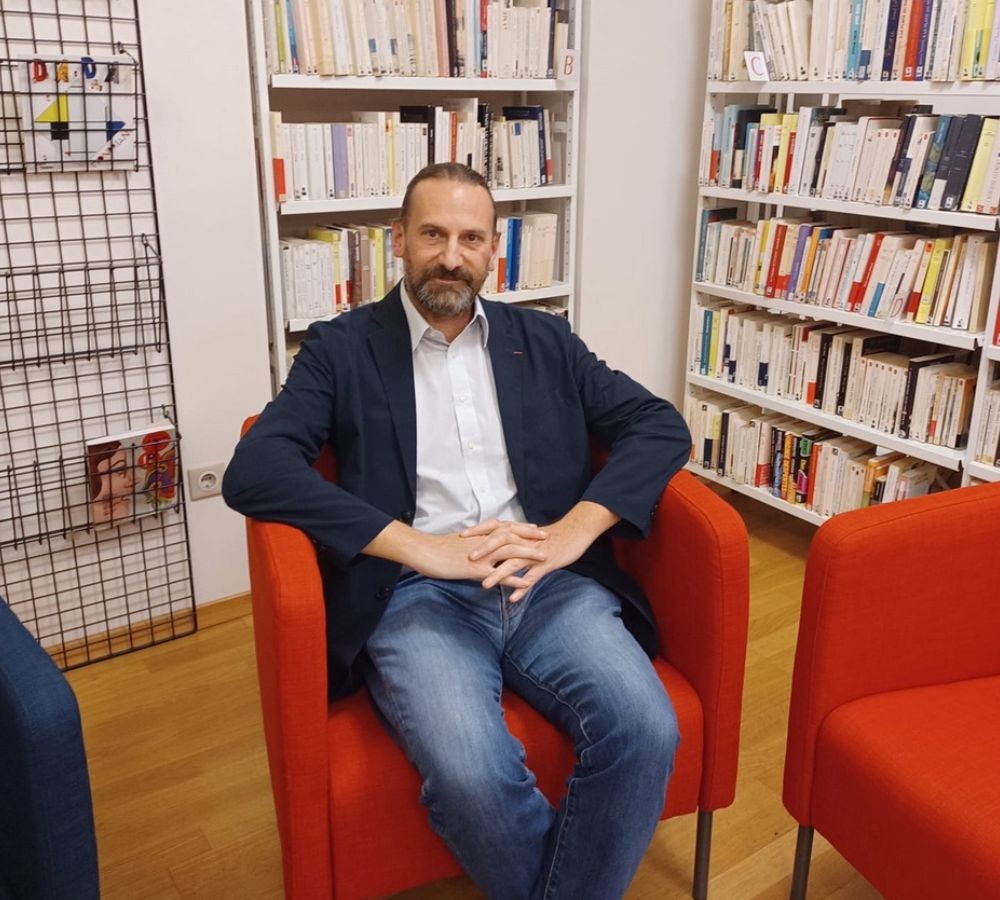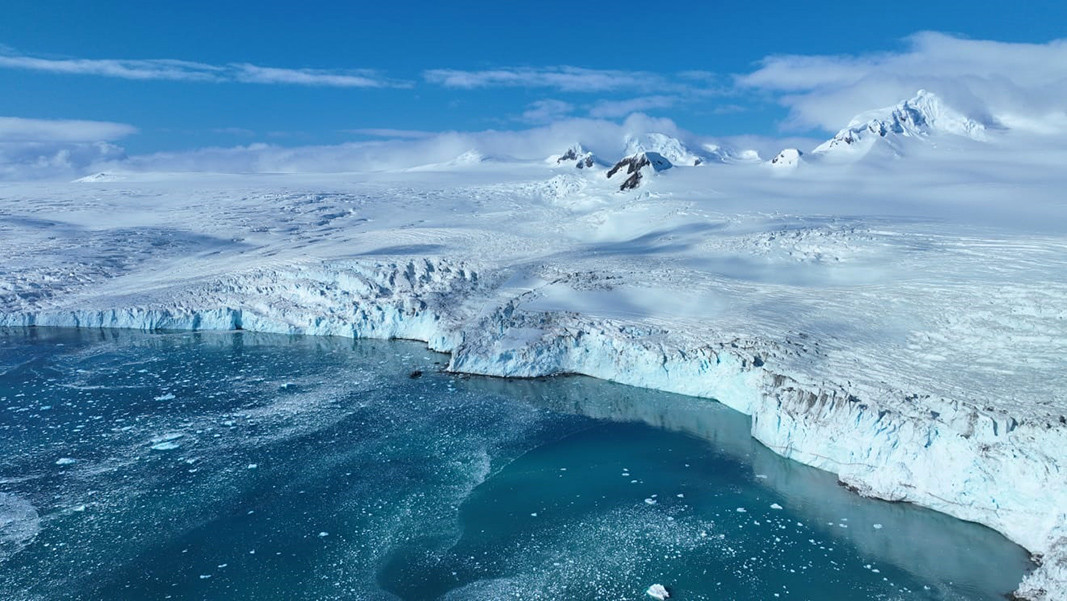The Embassy of France and the French Cultural Institute brought together scientists to present their experience and the scientific challenges in Antarctica, as well as the fight against climate change. Partners of the event were the French Polar Institute "Paul-Emile Victor", the Bulgarian Antarctic Institute and the Sofia University "St. Kliment Ohridski". A special guest was French researcher in the field of marine ecology Yan Ropert-Coudert.
The French scientist studies marine predators, marine mammals and birds, using them as a guide to environmental changes in the polar regions. He heads the research program at the Center for Biological Research in Chizé at the National Center for Scientific Research and the University of La Rochelle. Since 2022, he has been the director of the French Polar Institute "Paul-Emile Victor".
Although it is thousands of kilometers away from us, Antarctica is not just an icy continent with beautiful landscapes and a hostile environment. There we can learn about the history of our planet and the future of climate and ecological balance.

"What we need to know is that Antarctica is not just a remote and isolated place,” says Yan Ropert-Coudert in an interview with Radio Bulgaria. “Everything that happens on the continent does not just stay there and in fact Antarctica is the engine of climate change. For example, the rise of the World Ocean is decided there. That is why it is important to tell the general public why we are interested in this continent."
Everything we see across the world - the catastrophic floods in Valencia are a recent example - is related to the global change of the planet, as the engine room turns out to be Antarctica. But what happens to the flora and fauna?

"The continent does not have great biodiversity, on the contrary," the scientist told Radio Bulgaria. “However, the ocean around Antarctica is extremely rich but we know almost nothing about this biodiversity. In 2011, we did a major research and discovered about 9,000 animals that inhabit these waters, including 600 new starfish. And all this biodiversity will be affected by climate change, because the warming of the ocean leads to oxidation and the calcium shells become brittle, so these organisms gradually begin to disappear. That is how all species that would no longer exist would bring disruption to the bio balance and threaten the balance of the ecosystem. Many activities are needed right now related to environmental protection."
Do people realise the scale of this problem and what measures should be taken?
"I think that in comparison to the past there is much more information and awareness about taking measures,” Yan Ropert-Coudert says. “What is missing at the moment is making political decisions. We also see the difficulty of reducing harmful emissions all over the world. But before the carbon footprint is reduced, there is no way to improve the fight against climate change and to solve the problems in Antarctica and the rest of the world."

The Bulgarian and French bases are located at the opposite ends of Antarctica, but this does not mean that there are no opportunities for joint research work in the fields of biology and geology for the French Polar Institute "Paul-Emile Victor" and the Bulgarian Antarctic Institute, Yan Ropert-Coudert says. "The meeting at the French Cultural Institute in Sofia allows us to deepen this cooperation," the scientist adds.
Read also:
Publication in English: Al. Markov
Photos: Diana Tsankova, BTA, Bulgarian Antarctic Institute
The 14th edition of DiVino.Taste, Bulgaria’s leading forum for wines and winemakers, will take place from 28 to 30 November at the Inter Expo Centre in Sofia. Over 80 producers from all wine regions will participate, offering tastings of around 600 of the..
Minutes before the second and final reading, at the parliamentary budget and finance committee, of the state budget for 2026, the leader of the biggest party represented in parliament GERB Boyko Borissov halted the procedure and sent the draft bill..
Despite being in Bulgaria’s poorest region, the North-West, Vratsa Province ranks among the top three in the country for economic development. According to 2023 data from the National Statistical Institute (NSI), it shares third place with Varna on the..
The 14th edition of DiVino.Taste, Bulgaria’s leading forum for wines and winemakers, will take place from 28 to 30 November at the Inter Expo Centre in..

+359 2 9336 661
